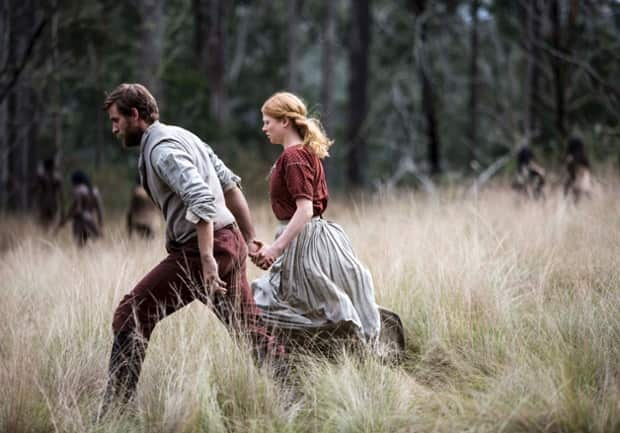ABC TV miniseries The Secret River has received widespread acclaim for its powerful portrayal of the conflict between Europeans and Aboriginal people in early colonial history, while the BBC’s Banished has been accused of "whitewashing" history for failing to show any Aboriginal people.
Producer Stephen Luby, who has credits including Kath and Kim to his name, spent eight years getting Kate Grenville’s Booker nominated novel The Secret River to the screen and said every effort was made to stay true to the original novel without compromising the Indigenous perspective.
"It was always important to us to have Indigenous collaboration on this because the story itself tells such a difficult aspect of White/Indigenous relations in the early part of our history," Luby told NITV News.

"I think stories of First Contact between white settlers in Australia and the original inhabitants of this country are difficult to tell because of the potential violence that's there at the heart of some of these stories."
Indigenous journalist Amy McQuire said that too often tales of our colonial past ignore the truth and said black perspectives are being lost in a “whitewash”.
"I think that feeds into the way Aboriginal people are continually portrayed, our voices are continually silenced and I think The Secret River does it a bit better than Banished but it doesn't do it a lot better," she told NITV News.
"I think we have to start looking at Aboriginal interpretations of the Frontier Wars and start looking at the truth of the invasion of this country."
Unlike The Secret River, the BBC's Banished series, also set in early Australia, has received a far more critical reception.
“I think the big indicator is Banished doesn't include one single Indigenous person which I find absolutely unbelievable given the whole history of this country is founded on invasion," said Amy McQuire.
Stephen Luby believes one of the reasons stories of the Frontier Wars are still few and far between is because it's a topic that many people find too confronting.
"I don't think it's controversy that stops us telling these stories I think it's fear, I think that's why we resist it, I think we don't want to know what went on in great detail and it's because we don't know how to deal with it, " he said.
